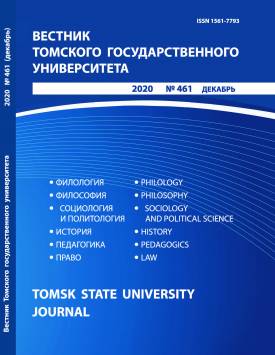University as a Cognitive Institution: The Target for Development
Universities and their future are considered in the socio-philosophical framework of a social institution conception. The key questions in this framework are: what (what kind of activity and what kind of relationship) is institutionalized in the form of a university; what the prospects for this activity are and how universities should change in order to remain an adequate institutional form for the developing activity. It is shown that the university arose as a result of the "institutionalization of intelligence" and it is a cognitive institution. Its uniqueness among other cognitive institutions is that it works on the level of bases: it constructs ideal objects, forms paradigms and ontologies. Social institutions are both "functional organs" of society and "organic social formations", i.e. their history is "packed" in their structure and functioning, and, if they currently "work poorly", then the problem cannot be solved by simple functional debugging. Institutions are sustainable and their modernization opportunities are limited, they are complexly related to values; their transformation takes the form of creating a new generation of organizations ("greenfield"), as organizations of the previous generation are often not amenable to reform. The authors distinguish three options for the modernization of a university: 1) overcoming the dysfunction of the university (it is brought in line with the needs of society); 2) "simple development" - complicating and updating activities and structures; 3) transformation - creating a "different" university as a crystallization center for new practices, types of relationships, and images of a person. The latter option is the formation of a new "ideal form" and the emergence of a new generation of universities; in this case, the university acts, paradoxically, as an institution of a yet non-existent society. It acts as a "test body", which seeks directions and paves the way for the formation of this society. The future of the university is considered in the framework of the formation of cognitive society. Symptoms of its emergence are the increase in the importance and scale of intellectual activity, the formation of collective intelligence structures, the creation of special cognitive technologies. The modern university is the epicenter of the formation of cognitive society, a "testing ground" for cognitive technologies and new forms of collective intelligence. The task for the development of the university is that it should become a key subject in the processes of the formation of cognitive society: it should generate a new agenda, deploy new practices, set the basis for the development of a person - comprehend their intentions, goals, directions. Currently existing universities do not correspond to this ideal image, which should be taken as a target for development.
Keywords
institution, cognitive institution, university, university modernization, ideal form, cognitive societyAuthors
| Name | Organization | |
| Efimov Valerii S. | Siberian Federal University | efimov.val@gmail.com |
| Lapteva Alla V. | Siberian Federal University | avlapteva@yandex.ru |
References

University as a Cognitive Institution: The Target for Development | Vestnik Tomskogo gosudarstvennogo universiteta – Tomsk State University Journal. 2020. № 461. DOI: 10.17223/15617793/461/8
